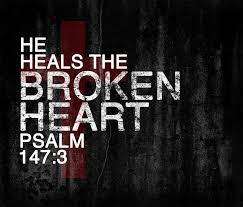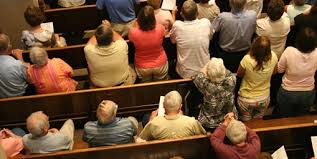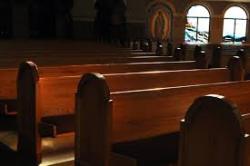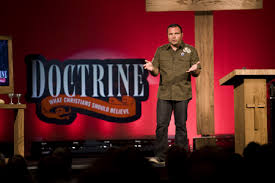 Why I Would Want The Five Fold In My Church – Part X
Why I Would Want The Five Fold In My Church – Part X
….. because it equips the local body to serve the local community through Jesus.
I could never understand the mentality of short term mission trips. Christians come to help clean up impoverished, underdeveloped neighborhoods, built new building structures (usually church buildings), help with children’s Bible Schools, help build orphanages, visit the elderly, etc., yet they do not do the same in their own local communities at home when at home. Why?
I marveled at watching a local church get the invitation to use a vacated community center for anything they wanted, no strings attached, but all they could come up with was ideas for programs since no one in their church lived in that community. They were ready to treat the “project” as they would a “mission’s trip”. They would come into the community when convenient, but not commit to living in that community to live out their faith daily through common experiences with those who lived there.
Church doesn’t have to be held in a building to which you drive to, meet for an hour or two, then leave for a week. Church can be held in your home, like the first century model. If held in your home, you are anchored in your community or neighborhood. The five fold would be perfect to be an effective ministry locally.
A person with an evangelistic passion would want to win the lost and birth the ideas the Holy Spirit would give the five fold group. The shepherding person would care for his/her neighbor, bringing cover dishes to the sick, meeting physical needs of the poor, minister to the hurting, and give advice and direction to those seeking. A true five fold teacher of the Word would not be an ivory towered theologian, but would want to make the Logos Word, the written Word, a Rhema Word, or a living Word in the personal lives of his/her community. A prophetic person would want to have his neighbors draw near to God, find God for themselves, commune with God when they have discovered him, and join in joint worship with their Christian neighbor. The apostolic person would marvel in what the Holy Spirit is doing through the many diverse members of the Body and network them to become more efficient and supportive in ministry. All this in their homes. All this in their own personal neighborhoods. This happened at the birth of the first century Church, and it can happen again. They identified their gatherings by naming them after their designated locations, communities, neighborhoods (ie. Church of Corinth, of Philippi, of Rome, etc.).
 Before the days of automobiles, churches were local, and were very much part of the local community social life. Today, on Sundays, Christians pass each other when driving to the church of their choice several miles away because there they “preach the word”, or have awesome worship, or have a dynamic youth ministry and children’s ministry, or are contemporary or traditional, or whatever….. We have fallen into the attitude that church is all about what we want, not about serving others. It is not about loving your neighbor as yourself when your neighbors doesn’t drive to the same destination.
Before the days of automobiles, churches were local, and were very much part of the local community social life. Today, on Sundays, Christians pass each other when driving to the church of their choice several miles away because there they “preach the word”, or have awesome worship, or have a dynamic youth ministry and children’s ministry, or are contemporary or traditional, or whatever….. We have fallen into the attitude that church is all about what we want, not about serving others. It is not about loving your neighbor as yourself when your neighbors doesn’t drive to the same destination.
Let’s ask the Holy Spirit to show us what to birth in our own local neighborhood, how to effectively win the lost by showing “grace” by sacrificially loving them through service while demanding nothing from them, how to make the Logos Word a Rhema living Word that touches lives, how to make God real to them to draw them into His Presence, and how to minister to the whole man through the whole Body of Christ. That’s the mindset that birthed the Church; that’s the mindset that will revive the Church!

























































